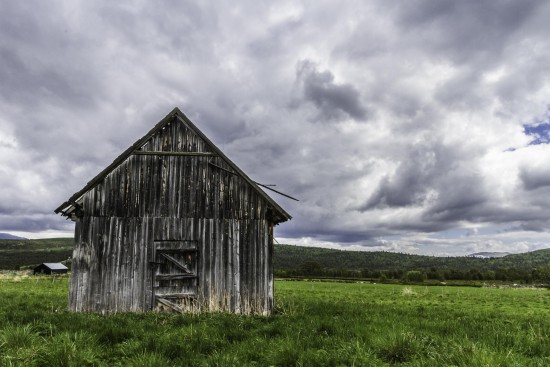 Via Morguefile
Via Morguefile
It's been ten years but I can still feel how the rain in the west of Ireland would impossibly blow both up and down into my coat and shirt, chilling me instantly. A Wisconsinite, I am no stranger to the cold but this near-daily wind and rain had a bite to it that the more honest Wisconsin winters didn't. There were days walking home when the word "bone-chilling" finally made sense, and that's when I began to notice how fast the Irish walk, almost as fast as they talk. I spent a year there and was damp most of the time, having only tea and my friends to help keep the chill away.
Now I'm an at-home mom back in Wisconsin with complete control over the thermostat and better outerwear. While the chill is thankfully no longer a threat, something else bites daily like the wind and rain of long ago. When errands, activities, and playdates are over and the babies and I return home, it can rear its head as quickly as the door shutting behind us. Loneliness.
While my friends and I have joked about setting up communes and the like, the truth of the matter is that isolation is simply not something easily escaped in modern day. Our many amenities can distract, sometimes, for a while, but the feeling always returns. A hidden cross for many these days, it can often be formidable.
Tomorrow we celebrate the feast of St. Patrick, one of our most celebrated saints, whose spiritual life was borne from the depths of isolation. At the age of sixteen, he was captured by a group of Irish and brought back to Ireland where he remained for six years in captivity herding livestock. During this time of enslavement in a foreign land, St. Patrick’s interior life flourished. With nothing else to keep him company, St. Patrick turned to God in prayer in a way he never had before. In the March volume of Butler’s Lives of the Saints, Butler writes that “the call to prayer was so insistent and such a source of joy that he would willingly face frost, snow, or rain to pasture the animals while he gave himself up to it” (p. 169). It was this time of growth that would prepare St. Patrick for his later mission work in the country.
St. Patrick embodies for us what our response to God can be in even the bleakest of situations. In Patrick we see how God wants us to respond when that which we hold most dear is stripped from us. In these peripheries of our existence with our cooperation God can build up our core, our union with Him, the Triune God. In following St. Patrick’s example, we can eschew the pleasures available to us and instead invite God into the void to remake us in a radically new way. And then, like Patrick, we might even be sent out to help rebuild others.
St. Patrick came to see his captivity as a blessing and his profound prayer life as “unmerited grace.” Let’s ask St. Patrick for help in filling the painful voids in our life with prayer, to see those painful moments as opportunities to welcome Love Eternal within us instead of seeing them as evidence of His non-existence or disinterest in us. And if we’re faithful to it, perhaps God will have His own extraordinary plans to use us, too, in rebuilding His Church.
Copyright 2015 Meg Matenaer.
Photo: Unnamed photo by TTronslien, 2014, via Morguefile.
About the Author

Guest
We welcome guest contributors who graciously volunteer their writing for our readers. Please support our guest writers by visiting their sites, purchasing their work, and leaving comments to thank them for sharing their gifts here on CatholicMom.com. To inquire about serving as a guest contributor, contact editor@CatholicMom.com.


.png?width=1806&height=731&name=CatholicMom_hcfm_logo1_pos_871c_2728c%20(002).png)
Comments